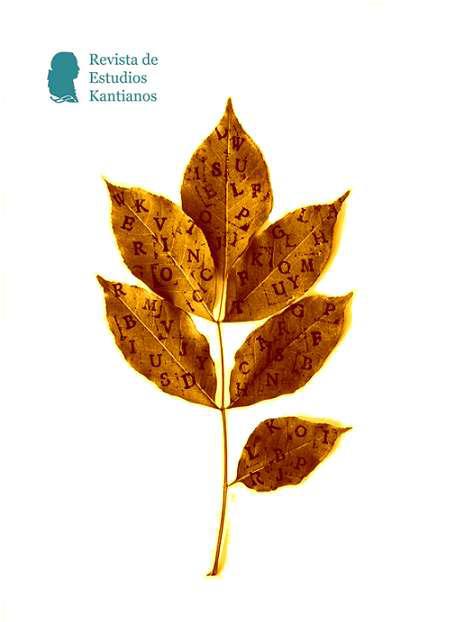Kant als Metaphysiker. Überlegungen zu Kants Metaphysikkritik
DOI:
https://doi.org/10.7203/REK.8.2.27510Keywords:
Category, criticism, development, dogmatism, god, idea, metaphysics, orientation, ontology, progress, scepticism, science Abstract
Abstract
Kant’s critique of metaphysics was not aimed at its whole destruction, but rather at its emendation. This becomes obvious, if we take into account Kant’s conception of the development of metaphysics which comes about in three steps. Kant named them as dogmatism, scepticism and criticism. It is not controversial to assume that criticism means Kant’s own position. If this is so, then one can also assume that Kant understood his own position as a third and last step in the development of metaphysics and therefore as a part of metaphysics. It is the aim of this essay to analyse this conception as it is presented in the Critique of Pure Reason and in the essay On the Progress of Metaphysics. There are first some prelimary remarks to make in order to explain the notion of development and its implications. Then in the second and third step an analysis is provided of this conception in the Critique of Pure Reason and in On the Progress of Metaphysics. In the last and fourth step the function of natural theology (theologia naturalis) is to be explained as it is found in the essay On the Progress of Metaphysics.
 Downloads
Downloads
 References
References
Cramer, K. 2001. Peripetien der Ontologie. Wolff, Kant, Hegel. In: R. Bubner und W. Mesch (Hg.). 2001. Die Weltgeschichte – das Weltgericht. Stuttgart: Klett-Cotta, S. 176-207.
Haamann, A. und Ludwig, B. 2017. Einleitung. In: A. Haamann, und B. Ludwig (Hg.). 2017. Über die Fortschritte der kritischen Metaphysik. Beiträge zu Architektonik und System der Kantischen Philosophie. Hamburg: Felix Meiner Verlag, S. 7-16.
Karásek, J. 2007. Philosophie als strenge Wissenschaft. Zur systematischen Begründung des Systems der Metaphysik bei Wolff und Kant. In: J. Stolzenberg und O.-P. Rudolph (Hg.). 2007. Akten der 1. internationalen Wolff-Konferenz Halle 2004. Hildesheim: Olms Verlag, S. 71-98.
Karásek, J. 2010. Der Selbstbezug der Vernunft. Zur Logik der Kantischen Ideendeduktion, in: J. Chotaš, J. Karásek und J. Stolzenberg (Hg.), Metaphysik und Kritik. Interpretationen zur „Transzendentalen Dialektik“ der Kritik der reinen Vernunft, Würzburg: Königshausen und Neumann 2010, S. 59-71.
Klemme, H. F., 2010. Die rationalistische Interpretation von Kants „Paralogismen der reinen Vernunft“. Eine Kritik. In: J. Chotaš, J. Karásek und J. Stolzenberg, Hg. 2010. Metaphysik und Kritik. Interpretationen zur „Transzendentalen Dialektik“ der Kritik der reinen Vernunft. Würzburg: Königshausen und Neumann, S. 141-161.
Langthaler, R., 2018. Kant über den Glauben und die „Selbsterhaltung der Vernunft“. Sein Weg von der „Kritik“ zur „eigentlichen Metaphysik“ – und darüber hinaus, Freiburg/München: Alber, S. 48-71.
Wundt, M. 1924. Kant als Metaphysiker. Ein Beitrag zur Geschichte der deutschen Philosophie im 18. Jahrhundert, Stuttgart: Ferdinand Enke Verlag.
Downloads
Published
How to Cite
-
Abstract218
-
PDF (Español)0
Issue
Section
License
![]()
The authors who publish in this journal agree with the following terms:
- The authors retain their copyright and guarantee to the journal the right to be the first to publish the work and to license it under a Creative Commons Attribution License that allows others to share the work with an acknowledgement of its authorship and the initial publication in this journal.
- Authors may separately establish additional agreements for non-exclusive distribution of the version of the work published in the journal (for example, placing it in an institutional repository or publishing it in a book), with acknowledgement of its initial publication in this journal.
- Authors are allowed and encouraged to disseminate their work electronically (e.g., in institutional repositories or on their own website) before and during the submission process, as this can lead to productive exchanges as well as earlier and greater citation of published work (see The Effect of Open Access).








